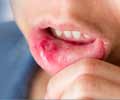Some bacteria living in the stomach may protect against diseases caused by stomach infection, states study conducted by scientists at the University of California, Santa Cruz.

Researchers in Ottemann's lab were studying H. pylori infections in mice when they noticed that mice from two different suppliers had different responses to the infection, even though they were the same mouse strain and therefore genetically identical. Examining the bacteria in the stomachs of the mice (the stomach "microflora"), they found differences between the mice from different suppliers. They then used antibiotics to alter the stomach microflora in mice from a single supplier and again found changes in the response to H. pylori.
"We found that something about the preexisting microflora, before H. pylori comes into the mouse, changes the mouse's response to the infection," Ottemann said.
The findings, published in the journal Infection and Immunity, have potential implications for treating human infections. The bacteria in the stomachs of mice and humans are broadly the same--not necessarily at the species level, but the same types of bacteria are present in both, Ottemann said.
H. pylori infections can cause ulcers and stomach cancer, but most infected people don't develop any disease. Furthermore, there is evidence that H. pylori infection can protect against diseases such as esophageal cancer and asthma. For these reasons, people are only treated for the infection if they develop symptoms. With a better understanding of the effects of the stomach microflora, it might be possible to predict whether someone is likely to develop disease and should be treated for an H. pylori infection.
"It would be nice if we could predict who would get disease," Ottemann said. "The other possibility is that we might be able to identify some bacteria that could be used as a probiotic to dampen H. pylori disease."
Advertisement
The researchers treated some of the mice with antibiotics, which did not eliminate stomach bacteria but substantially changed the composition of the gut microflora. The altered microflora dampened the inflammatory response to H. pylori infection. When they looked for differences in the stomach microfloras of mice with and without inflammatory disease, the researchers found more than 4,000 differences--either species present in one group and not in the other, or differences in the abundances of certain species.
Advertisement
Source-Eurekalert











